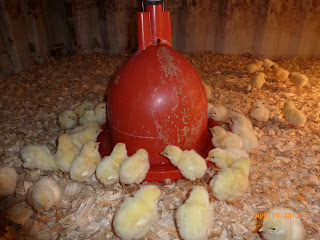Andrew Tozarz in tradtional shepherd attire.
Just a couple of years into our farming experience, Beth and I were nearly burnt out, and we considered throwing in the towel and going back to our more conventional careers. Starting any business is stressful and time-consuming. Starting a diverse, sustainable, farm in a sea of corn and soybeans is that, plus it's lonely and isolating.
An early frost, ended our second season of vegetable CSA a couple of weeks early. To be perfectly honest, we were glad of it. That's how exhausted and discouraged we were. Fortunately, we didn't quit. Rather we regrouped and registered for our first farming conference - a CSA conference in Michigan. Although we'd beeen growing a Community Supported Agriculture business for two years and had cultivated a community of eaters, we hadn't tapped into a community of farmers.
The Michigan CSA conference showed us just how collaborative and supportive the people involved in sustainable farming truly are. Not only did we learn a lot about making a CSA work, we, also, learned that we weren't alone in our struggles. Not feeling alone was probably just as important as all the new knowledge we brought back. Beth and I credit that first conference with keeping us in farming.
Still, in our part of Illinois, sustainable farms are few and far between and staying connected in our busyness is not always easy - but it's the connections that keep us going. Over beers one night during the winter of 2008, Larry O'Toole and I concieved the North Central Illinois Farmer Network (aka greenfarmers) to make it easy for farmer like us to connect and support one another.
So, we started a Yahoo group and invited all the sustainable farmers within a 1 1/2 hour drive to meet at a independent coffee shop in Joliet, IL, which was a central location. We asked everyone to share the invite as widely as they could. One of the farmers that came to that first meeting was Andrew Tokarz.
Andrew lives in Chicago, but he and a group of entrepreneurial Poles operate a cooperative sheep farm in Lemont, Illinois. The members of the group take turns at the farm caring for everyone's sheep (most have other jobs in the city). Andrew's enterprise is dairy sheep (& amazing sheep-milk cheeses) and Polish Tatras (a rare breed of livestock guardian dogs).
Jody with our guardian dogs - Sasha, Sophie, & Harry
At that meeting, we learned that he had a litter of Tatra pups that needed work. As we have every known predator in northern Illinois living (and eating chickens on our farm), it was serendipity. A few weeks later, Sasha and Sophie arrived on the farm. Harry was added last year. We've found them to be incredibly intelligent, friendly to our human visitors, fiercely protective of all our animals. They've definitely earned their kibble over the past four years!
Beth with Sasha.
Thanks Andrew!

















































